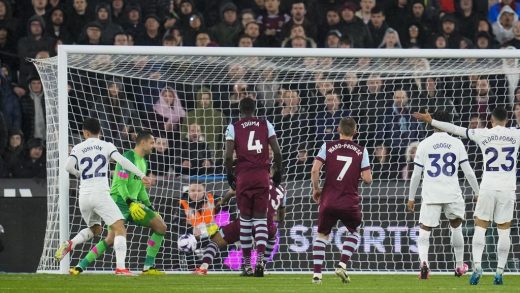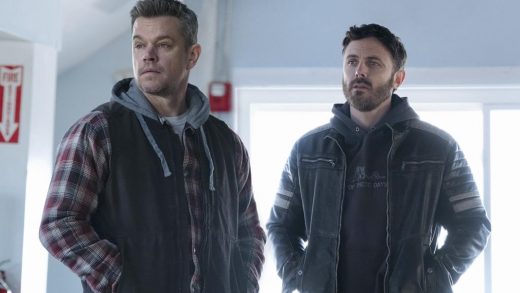
There are fears that unless there is unity inside New Zealand tennis, the task of developing another top 100 singles player could remain fruitless.
Tennis New Zealand is looking for it’s fourth high performance coach in six years as Christophe Lambert resigned last week, to take up a role as Bianca Andreescu’s coach.
Lambert, from France, took over from former NZ Davis Cup player Simon Rea, who left to relocate to Australia, while in 2018 the federation parted ways with performance coach Marcel Vos.
All three left feeling frustrated, struggled to build much unity inside the New Zealand tennis community towards what they were trying to achieve, while there have only been modest improvements in developing players who have the potential to crack the top 100 in singles.
READ MORE:
* Top New Zealand tennis junior Shona Nakano eyeing switch to Japan for support
* Kelly Evernden new Davis Cup captain
* Covid continuing to cause disruptions for tennis in NZ with more uncertainty ahead
Tennis NZ CEO Julie Paterson has said she will spend time working through what they do next, but New Zealand Davis Cup captain, Kelly Evernden, who is based in Seattle, feels some serious questions need to be asked.
Stuff
Kelly Evernden with Chris Lewis in 1992. Chris Lewis was the main figure behind the scrapping of a national tennis programme during his time with Tennis Auckland.
“There are some issues to be worked out with longevity and how hard it is to do the job,” Evernden said.
“It’s not a very long tenured job. The people that have had that job have not really lasted for a long period of time and there has to be questions asked by New Zealand and the people in tennis in New Zealand, the players, coaches and people in regional areas, as to why it’s so hard to hold that job.
“If they are making it so hard, maybe there needs to be a look at the reasons why everyone’s making it so hard.”
For Evernden, it’s a concern how disillusioned people are when they leave that job.
“They are always thinking ‘thank God I’m out of that’,” he said.
Andrew Cornaga / www.photosport.
Simon Rea said he felt the New Zealand wasn’t as connected as it could have been.
“Everyone says they want to be that person (in this role), but if you get treated the same way everyone else gets treated, all of a sudden you realise you don’t want to be that person any more.
“I think that has to change and it has a lot to do with the insecurities a lot of people have based around that job.”
When Rea left in 2020, he told Stuff it was for others to comment on whether he left Tennis NZ in a better place than when he started.
“It’s been really challenging at times and it is a challenging role in this climate,” he said.
“I still don’t feel like we’re anywhere near as connected as we need to be, as a tennis community.”
Jonathan Cameron/Stuff
Marcel Vos held a number of senior roles in Tennis NZ before leaving in 2018.
During Vos’s time as national coach Tennis NZ the then CEO of Tennis NZ, Steve Johns was sent a letter from five leading regional selectors and coaches, saying they no longer had faith in Vos and could not work with him.
Johns, said at the time: “The relationship hasn’t been fantastic between both parties.”
It could be argued Tennis NZ recruited poorly in hiring Vos, Rea and Lambert and the lack of any players approaching the top 100 remains a concern, so people could question the systems put in place.
But there hasn’t been much in the way of unity in the New Zealand for decades as the country went from disbanding a national programme to give autonomy to the regions, to bringing one back.
Lambert will keep his house in New Zealand, even though he’ll be spending 35-40 weeks on the road with Andreescu, and he’ll still call this country home.
But in speaking to him, you get the feeling he’s glad to be moving on.
“As everyone has said, I think this is a difficult position to stay in,” Lambert said.
“You are going to have a lot of trouble, but I met a lot of fantastic people in New Zealand and I remain close to many people.
“It’s just that there were a small number of people making a lot of noise that was making things difficult.
“My predecessors say it’s always been like this, I’ve spoken with Marcel and Simon, even with people who were there longer.
“We have some great kids, some great young coaches, who are doing fantastic work and I really hope we are going to give them more responsibility.”
“I wish I could have helped more people, but I was really happy to help the ones I did,” he added.
“There are a lot of good kids there and if they’re given the positive thinking they need, instead of always hearing the negativity, I think they could play well.”
Tennis NZ would look at its high performance structure, to decide what sort of person they want coming in, although there could be an internal promotion.
“We are going to review our current team that’s working in high performance, have a look and see where our gaps are and see what we need to do to replace that role,” Paterson told Stuff last week.
“That will happen over the next four to six weeks. With it being one of our senior management roles within Tennis NZ, it’s a discussion that needs to be had with the board as well, so it’s not a quick replacement.”
Whoever comes in as the new figurehead of high performance for Tennis NZ, it is crucial they get support from all the key stakeholders, otherwise the wait for another top 100 singles player will go on for much, much longer.


